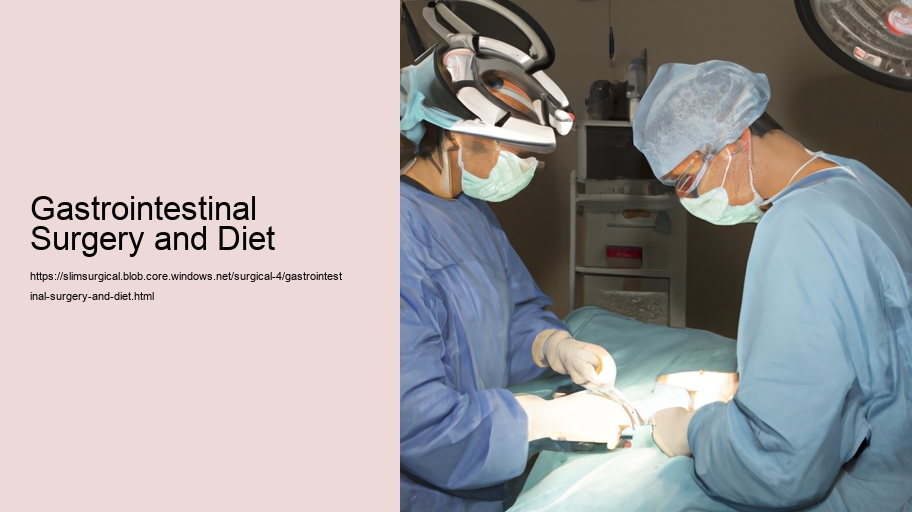Gastrointestinal Surgery and Diet: A Delicate Balance for Healing and Health
Gastrointestinal surgery is a broad term encompassing various procedures aimed at rectifying issues within the digestive tract, which includes the esophagus, stomach, intestines, and other related organs such as the liver, pancreas, and gallbladder. Surgeries can range from minimally invasive endoscopic procedures to more extensive operations like resections or bariatric surgeries. While the surgical techniques and indications may vary widely, one aspect remains consistently critical across the board: diet.
The intricate relationship between gastrointestinal surgery and diet is akin to a delicate dance where each step must be meticulously choreographed to ensure a successful outcome. This essay delves into the importance of diet before and after surgery, the challenges patients might face, and the strategies for managing dietary changes throughout the recovery process.
Pre-Surgical Diet:
Preparation for gastrointestinal surgery often involves dietary adjustments. Depending on the type of surgery, a patient might be advised to follow a special diet to reduce the size of the liver, clear the intestines, or simply ensure optimal nutritional status before the procedure. For example, patients undergoing bariatric surgery may be put on a very low-calorie diet to help reduce fat around the liver and abdomen, which in turn can decrease the risk of complications and improve surgical access.
In addition to these specific requirements, a well-balanced diet rich in vitamins, minerals, proteins, and antioxidants is often recommended to bolster the immune system, enhance wound healing, and provide the energy necessary for recovery. Pre-surgery diet management is also a crucial time for patients to begin establishing healthy eating habits that will be vital post-surgery.
Post-Surgical Diet:
The postoperative period is a critical time for dietary management. After surgery, the body needs to heal and adapt to any anatomical changes that have been made. Immediately following surgery, patients may be started on a clear liquid diet, progressing to full liquids and then to pureed foods as tolerated. This gradual progression helps to ensure that the digestive system is not overwhelmed and can adjust to its new state.
As healing continues, solid foods are slowly introduced. However, portion sizes and food consistency remain important factors to consider. Patients must relearn their body's signals for hunger and fullness, especially after procedures like bariatric surgery, where the stomach's capacity is significantly reduced.
Dietary restrictions or modifications may also be necessary following surgeries that result in altered digestion or absorption. For instance, after a gastrectomy, where a portion or all of the stomach is removed, patients will need to eat smaller, more frequent meals and may require supplementation with vitamins and minerals.
Challenges and Management:
Navigating dietary changes after gastrointestinal surgery can be challenging. Patients may experience a loss of appetite, taste changes, or gastrointestinal discomfort, including nausea, vomiting, or diarrhea. These symptoms require careful management and patience, as the body adapts to its new normal.
Dietitians play a crucial role in patient education and support during this time. They can provide tailored advice on meal planning, portion control, and nutrient intake to ensure that patients are meeting their dietary needs while also accommodating their altered digestive systems. Regular follow-up appointments are essential to monitor progress and make any necessary adjustments to the diet.
Lifestyle changes, including regular physical activity and avoiding alcohol and tobacco, also contribute to a successful recovery and long-term health maintenance. Support groups and counseling may be beneficial for patients adjusting to significant changes in their eating habits and lifestyle.
Conclusion:
Gastrointestinal surgery presents a unique set of challenges and considerations with regard to diet. Proper nutritional management is imperative for a smooth recovery and to ensure the long-term success of the surgical intervention. A carefully planned and monitored diet, coupled with lifestyle modifications and support, empowers patients to navigate the postoperative period and embrace a healthier future. Ultimately, the goal is not just to recover from surgery but to foster a sustainable way of living that promotes overall well-being and quality of life.
